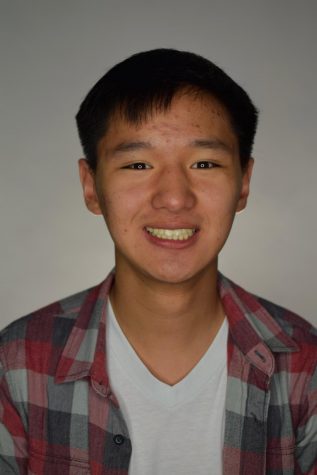Religion as Tradition
Two years ago, current senior Golan Gingold attended his first and last meeting of the Jewish Student Union. Apparently, the club was not tailored towards atheist Jews.
Though he drank hot chocolate with peppermint and drank holidy movies last Christmas Eve, Gingold does not believe that he is betraying his Israeli origins. Gingold’s parents are from Israel, the country created for Judaism, but call themselves less religious than the average Jewish couple. In fact, his father does not believe in God.
“Israeli people are more about the culture and the tradition and less about religion and reading the Torah,” Gingold said.
He often feels distant from Jews who study the Torah closely, since he is Jewish only by name. Gingold, raised as an Israeli with a religious mother and atheist fa
ther, has always felt conflicted his logical side, which favors scientific explanations, and his spiritual side, which favors trust in an all powerful being to help alleviate the world’s suffering. However, he is critical of such a being existing because there is still much suffering in the world. He may not pray every night, but he will light the eight candles of Hanukkah this November to honor his Israeli roots.
Separate but Equal
Senior Nirupama Chandrasekhar was born into a Hindu family, but attended a Christian elementary school and made many Buddhist friends. Of the three religions she found herself well-versed in, ultimately, she followed none.
Chandrasekhar believes that most religions preach good virtues, but have old cultural ideas that are no longer applicable to present day. Buddhism sees her attachment to anything as a blockade of her enlightenment. Christianity looks down upon her bisexual orientation. Hinduism limits equality with its caste system.
However, Chandrasekhar still holds the spiritual self in high regard, disregarding only divine ordinations that belittle other beliefs and values. Whether or not they believe in greater dieties, every person can shape their own future with their spirituality.
“When your strict adherence to a religion is harming other people,” Chandrasekhar said, “I think you really have to think about your effect on the world.”
A Leap of Faith
The sound of church bells was common on Sundays throughout senior Sierra Rodrigues’ childhood. Now, her Sundays are filled with the sounds of her hiking and playing games with her friends.
Rodrigues used to be an active member of the Catholic Church. Now that she feels a discrepancy between what she was taught and what she truly believes, Rodrigues doesn’t find Catholicism playing a big role in her life.
It was in middle school, when Rodrigues started having more activities, that she began treating religion as a lower priority. As Rodrigues grew up, she realized some of the church’s teachings contradicted her values. For instance, Rodrigues found that many Catholics are intolerant of same-sex marriage.
“I feel like sometimes people take what the Bible says very seriously,” Rodrigues said. “People should be able to love whoever they want.”
Nevertheless, Rodrigues is still unsure whether or not she will return to church.
“Some part of [Catholicism] is still with me,” Rodrigues said, “but for the majority [of time], it isn’t very prevalent.”
Rejecting Religion
Persecution. Imprisonment. Torture. Just centuries ago, senior Naré Mikayelyan would have been labeled a
heretic. Thankfully, that’s not the case today. For years, Mikayelyan, who was born into the Eastern Orthodox Church, questioned whether or not her decision to become atheist was an ethical one.
Despite her early exposure to Catholicism, Mikayelyan became alienated by the religion when she was only in grade school.
“It was one day in elementary school when I didn’t really understand who we were praying to,” Mikayelyan said.
Mikayelyan said she used to be hard on herself because she knew Christians had to act a certain way, questioning whether or not she was being righteous. Yet Mikayelyan could not find any evidence of God. It was then that she realized she didn’t believe in her religion.
Today, Mikayelyan supports her parents by continuing to go to church. She admits it is a bit awkward, but she has shifted her perspectives.
“I kind of just treat it as visiting a museum,” Mikayelyan said.










